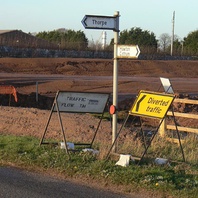
Viking Names
Thorpe
Thorpe, in the Newark Wapentake of Nottinghamshire, is simplex name from Old Norse þorp ‘a secondary settlement, a dependent outlying farmstead or hamlet’. Probably regarded as an outlying settlement from Newark.
Read More
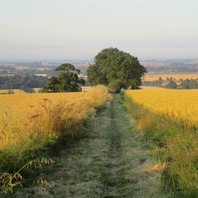
Viking Names
Hawerby
Now joined with Beesby, Hawerby is in the Haverstoe Wapentake of Lincolnshire, which has also been joined with Bradley Wapentake to form Bradley Haverstoe Wapentake. The name comes from an Old Norse male personal name Hávarðr plus the Old Norse element by ‘farmstead, village’. Interestingly, the same personal name is found in the wapentake name, Haverstoe, which combines it with the Old Norse element haugr ‘mound’. As Kenneth Cameron put it, ‘the coincidence is too great to avoid the conclusion that both are named from the same man. The site of the wapentake meeting-place is almost certainly a mound in the parish of Hawerby’. It has been suggested that the mound in question is a prehistoric round barrow (of which there is little or no trace today, as a result of ploughing) at TF 254 977, which has a fine view of the Humberside levels.
Read More
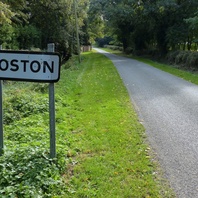
Viking Names
Foston
Foston, in the Appletree Hundred in Derbyshire, has a difficult naming history. The form of the name in Domesday Book, Farvlvestvn, seems to be from the Old Germanic male personal name Farulf with the second element Old English tun ‘farm, settlement’. It is believed that Foston, from the Old Scandinavian male personal name corresponding to the Old Norse male personal name Fótr, was originally a separate settlement site which in the course of time became more important than Farvlvestvn and displaced this name. Alternatively, the name Farulfr was common in Swedish and the first element in the Domesday form of this place-name may well be this Scandinavian name. Foston is a joint parish with Scropton.
Read More
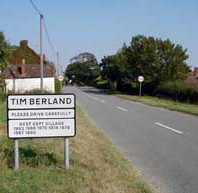
Viking Names
Timberland
Timberland, in the Langoe Wapentake of Lincolnshire, is likely an Anglo-Scandinavian hybrid coming from Old English timber ‘timber, trees; a wooden building’ and Old Norse lundr ‘a small wood’, thus giving the place-name the meaning ‘the grove where timber is obtained’. Alternatively, the first element may be Old Norse timbr ‘timber, trees, wood’.
Read More

Viking Names
Sutterby
Sutterby, in the Candleshoe Wapentake of Lincolnshire, comes from Old Norse sútari ‘a shoe-maker’ and Old Norse bý ‘a farmstead, a village’.
Read More
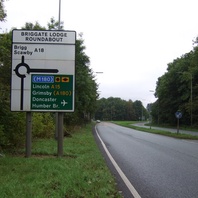
Viking Names
Scawby
Scawby, in the Manley Wapentake of Lincolnshire, likely comes from the Old Norse male personal name and byname Skalli, related to Old Norse skalli ‘a bald head, a bald-headed person’ and bý ‘a farmstead, a village’. Alternatively, skalli could be used to describe a bald hill. In the neighbouring parish of Broughton the minor names Scalehou and Scallehou were recorded in the twelfth and thirteenth century, the first element being the same Old Norse personal name with Old Norse haugr ‘mound’. Likely the Skalli of Skal(l)ehou was the same person as Skalli of Scawby.
Read More

Viking Names
Crosby
Crosby, in the Manley Wapentake of Lincolnshire, is a difficult name. The earliest spelling of the name in the Domesday Book suggests that the name comes from the Old Norse male personal name Kroppr and the Old Norse element bý ‘a farmstead, a village’. However, it is believed that this spelling is an error as it is not supported by later forms which indicate rather a place-name meaning ‘the farmstead, village marked by crosses’, from krossa, the genitive plural of Old Norse kross ‘cross’, with Old Norse bý.
Read More
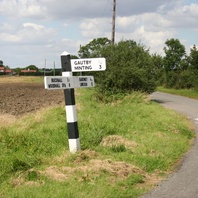
Viking Names
Gautby
Gautby, in the South Riding of Lindsey in Lincolnshire, comes from the Old Norse male personal name Gauti and Old Norse bý ‘a farmstead, a village’.
Read More
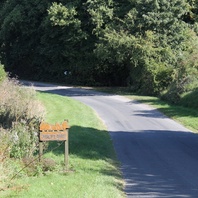
Viking Names
Ruckland
Ruckland, in the Louth Eske Wapentake of Lincolnshire, is a Scandinavian compound formed from Old Norse hrókr ‘a rook’ and Old Norse lundr ‘a small wood’.
Read More
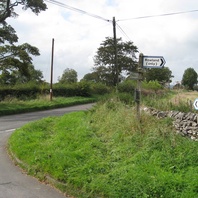
Viking Names
Rowland
Rowland, in the High Peak Hundred of Derbyshire, is a Scandinavian compound from Old Norse rá and Old Norse lundr ‘a small wood’. It is difficult to determine if the first element rá either means ‘a roe, a roe-buck’ or ‘a land-mark, a boundary’. The forms also show the common replacement of lundr with land which also happened in Hasland, Derbyshire.
Read More
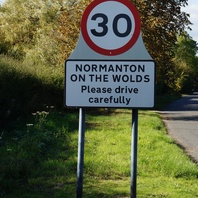
Item
Normanton on the Wolds
Normanton on the Wolds, in the Bingham Wapentake of Nottinghamshire, takes its name from the Old English ethnonym Norðman ‘Northman, Norwegian’ and the Old English element tun ‘farm, settlement’. There are several places of this name, predominantly in the East Midlands: five in Nottinghamshire, one each in Derbyshire, Leicestershire, Lincolnshire and Rutland, and one in the West Riding of Yorkshire. Traditionally, the place-name has been interpreted as referring to a settlement of Norwegians (in an area where most of the Scandinavian settlers were Danes). However, the exact implications of such a name are not yet fully understood and are the subject of ongoing work by Dr Jayne Carroll of the Institute for Name-Studies, University of Nottingham.
